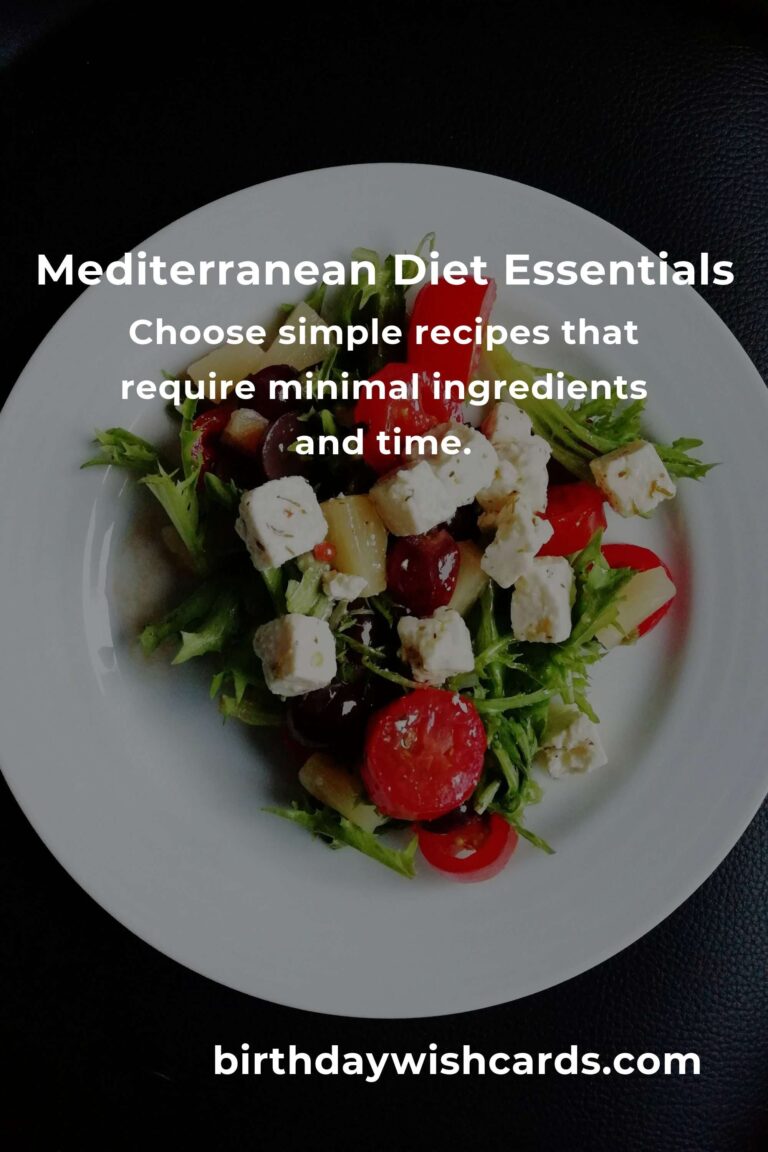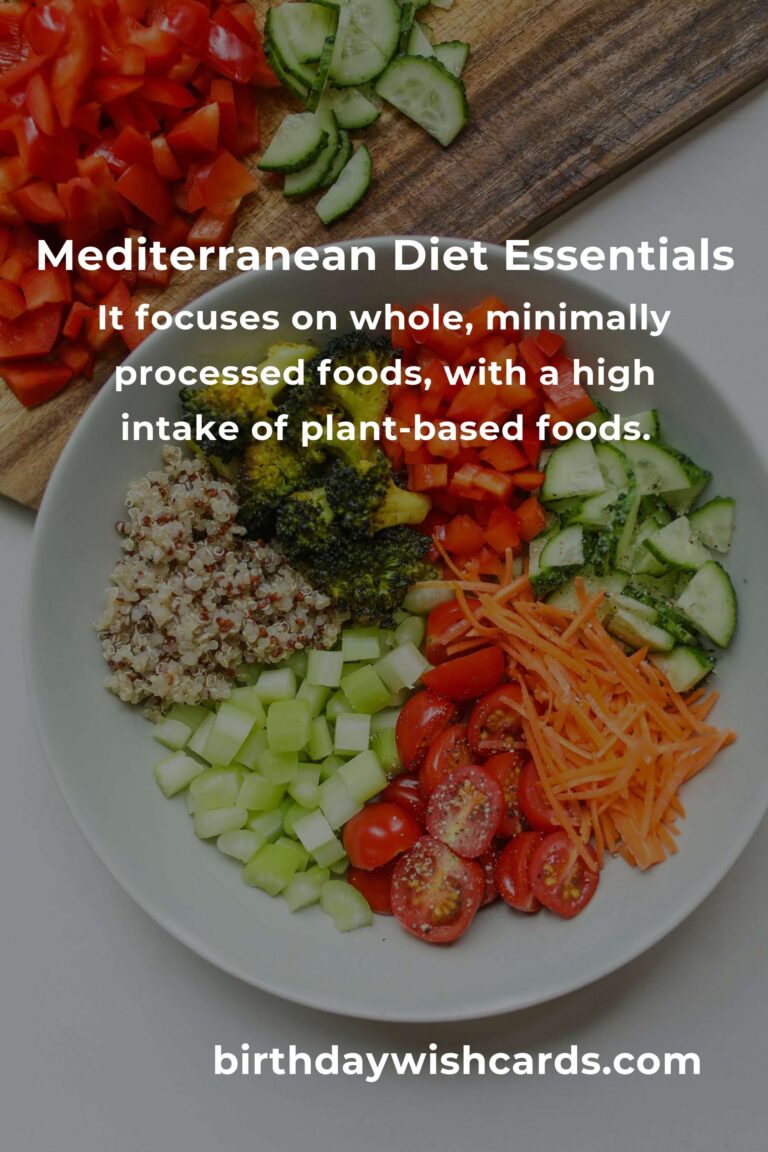
The Mediterranean diet has long been hailed as one of the healthiest eating patterns in the world. Renowned for its emphasis on fresh fruits, vegetables, whole grains, and healthy fats, it is no wonder that many health professionals recommend it to their patients. However, for busy professionals juggling work commitments, maintaining a balanced diet can be challenging. This guide aims to simplify and tailor the Mediterranean diet for professionals who are always on the go.
What is the Mediterranean Diet?
The Mediterranean diet is inspired by the traditional eating patterns of countries bordering the Mediterranean Sea, such as Greece, Italy, and Spain. It focuses on whole, minimally processed foods, with a high intake of plant-based foods, moderate consumption of fish and poultry, and limited red meat and sugar.
Key components include:
- Fruits and vegetables
- Whole grains
- Legumes and nuts
- Olive oil as the primary fat source
- Moderate consumption of dairy, mainly cheese and yogurt
- Fish and seafood
- Poultry in moderation
- Red wine in moderation, usually with meals
Benefits of the Mediterranean Diet
The Mediterranean diet is associated with numerous health benefits, including:
- Reduced risk of heart disease
- Lower cholesterol levels
- Improved cognitive function and reduced risk of Alzheimer’s disease
- Weight management and reduced risk of obesity
- Decreased risk of type 2 diabetes
- Improved longevity
Tips for Busy Professionals
For busy professionals, meal planning and preparation can be a daunting task. Here are some tips to make it easier:
1. Meal Prep and Planning
Set aside time each week to plan your meals and prepare ingredients. Consider batch cooking grains, roasting vegetables, and pre-portioning snacks for the week.
2. Keep it Simple
Choose simple recipes that require minimal ingredients and time. A salad with mixed greens, cherry tomatoes, olives, feta cheese, and a drizzle of olive oil can be both satisfying and nutritious.
3. Make Use of Technology
Use meal planning apps or subscription services that cater to Mediterranean diet preferences. These tools can provide recipe ideas, shopping lists, and nutritional information.
4. Stock Up on Essentials
Always have Mediterranean diet staples on hand, such as olive oil, canned beans, whole grains, and frozen vegetables. This will make it easier to whip up healthy meals quickly.
5. Eat Out Mindfully
When dining out, choose restaurants that offer Mediterranean options. Opt for grilled fish, salads, and vegetable-based dishes rather than fried foods or heavy sauces.
Sample Mediterranean Diet Meal Plan for Professionals
Here’s a sample meal plan to help get you started:
Breakfast
Overnight oats with Greek yogurt, honey, walnuts, and berries.
Lunch
Quinoa salad with chickpeas, cucumber, red bell pepper, parsley, and lemon-tahini dressing.
Snack
Hummus with carrot sticks and whole-grain crackers.
Dinner
Grilled salmon with roasted Brussels sprouts and sweet potatoes.
Dessert
Fresh fruit salad with a sprinkle of chopped nuts.
Conclusion
The Mediterranean diet is not just a diet; it’s a lifestyle that promotes health, longevity, and well-being. For professionals, adopting this way of eating can lead to improved energy levels, better focus, and overall health. By incorporating these tips and meal ideas into your routine, you can enjoy the benefits of the Mediterranean diet without adding stress to your busy life.
The Mediterranean diet is inspired by the traditional eating patterns of countries bordering the Mediterranean Sea.
It focuses on whole, minimally processed foods, with a high intake of plant-based foods.
The Mediterranean diet is associated with numerous health benefits, including reduced risk of heart disease and improved longevity.
For busy professionals, meal planning and preparation can be a daunting task.
Choose simple recipes that require minimal ingredients and time.
The Mediterranean diet is not just a diet; it’s a lifestyle that promotes health, longevity, and well-being.
#MediterraneanDiet #HealthyEating #BusyProfessionals #MealPlanning #Wellness

